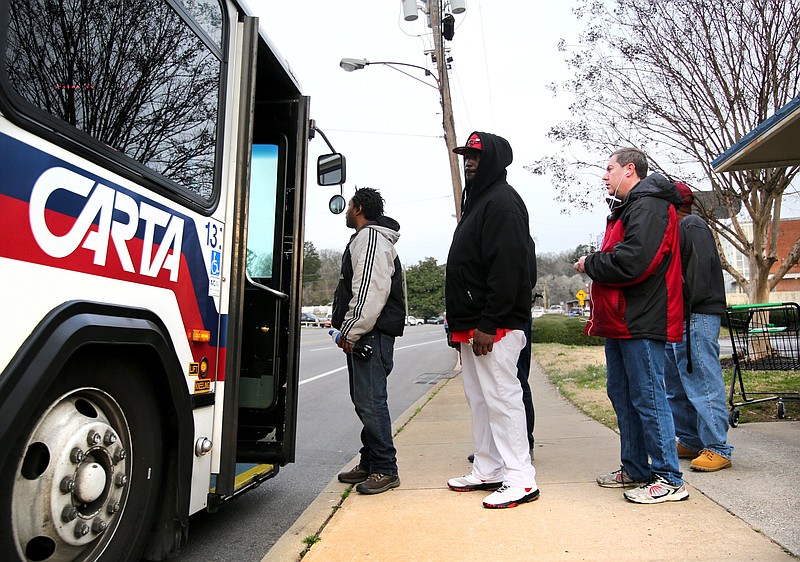If you live in Chattanooga, your mayor has far more influence in your life than elected leaders on the federal and state level.
No president or governor, for instance, is going to make sure your local park is safe and clean. Neither will they assure your garbage is collected or that your police force is well-trained, well-equipped, and has resources not just for safety but for any attendant eventualities.
Gone are the days when the only mayoral candidates were white men and when actions in the mayor's office came only after advice from wealthy property owners, the Chamber of Commerce and captains of industry.
Fortunately, the 2021 mayoral candidate field for the March 2 election is wide, experienced and diverse.
Last week in this space, we discussed some of the candidates' ideas for affordable housing, workforce training and use of the city's youth and family development centers. Today, we'll parse some of their ideas for various collaborations with the county, for use of the city's CARTA buses and for use of the city's public offices.
* County collaboration: The candidates haven't thrown out calls for a metro government, but almost all have had something to say about the need for a better working relationship with the county. Nobody's pointing fingers at the city or county as the responsible party for the relationship not being better, but most believe better days can be ahead.
The county took over responsibility for the city's schools in 1997, and the city since then has been like the homeowner watching the children next door growing up. The children aren't the homeowner's responsibility, but the homeowner doesn't feel like sitting idly by if the homeowner sees areas where he or she might be of some help to the children next door.
As mentioned last week, the candidates want to offer what they can to children from birth to kindergarten, the age when they enter the county system. So that includes continuing some of current Mayor Andy Berke's outreaches to new mothers and families, strengthening and expanding the availability of child care throughout the city, and even aligning the curriculum within child care agencies in the city.
But candidates say their assistance shouldn't stop at kindergarten doors. The city can play a role, they say, by collaborating with county education officials on the activities that take place in the city's youth and family development centers (YFDs) after school.
After all, said Wade Hinton, "the majority of [students'] time is spent outside the school building."
If done right, he said, the YFDs could become training centers that help facilitate the interest in, and job skills for, the trades in which they might be employed after graduation.
* CARTA: The Chattanooga Area Regional Transportation Authority was brought up frequently by candidates, either in the use of its buses or in how the system might better factor in transportation for students to get to any existing or new facilities that offer trades instruction.
The boldest idea came from Monty Bruell, who would make all the buses free. He also would have a bus stop at every county middle school and high school, some of which are in areas the system does not currently serve.
As of now, he says, only 11% of CARTA's revenues come from fares. The rest, according to the authority's financial statements, comes largely from federal, state and local operating subsidies and federal, state and local planning grants.
CARTA also operates the Lookout Mountain Incline, the free Downtown Electric Shuttle and the downtown parking system that includes three parking garages.
Bruell said he would make up the 11% in revenues from raised downtown metered parking fares, increased parking ticket fees and an electric water taxi he would establish on the Tennessee River.
Both Tim Kelly and Kim White mention a more coordinated use of the bus service to serve either the Future Ready Institutes already in the schools or in whatever ways the city might partner with the county schools to provide an improved trades education. That partnership was said to be in the works when the Future Ready Institutes were created several years ago but has never become a reality.
* Development Resource Center (DRC)/codes: Another frequently mentioned topic of candidates is the difficulty for average citizens in navigating city regulations, permitting and ordinances.
Christopher Dahl claims flat out the city is not operating by the ordinances and codes on its books. The others are a little more circumspect.
Chris Long, for example, says he is aware of a situation in which it took a year and a half for an individual to get a building permit. Kelly, similarly, says the city's sign ordinances need revamping.
White says with the DRC, which houses - among other entities - city offices for public works, land development and transportation and regional offices for planning, there is a "huge opportunity for improvement."
